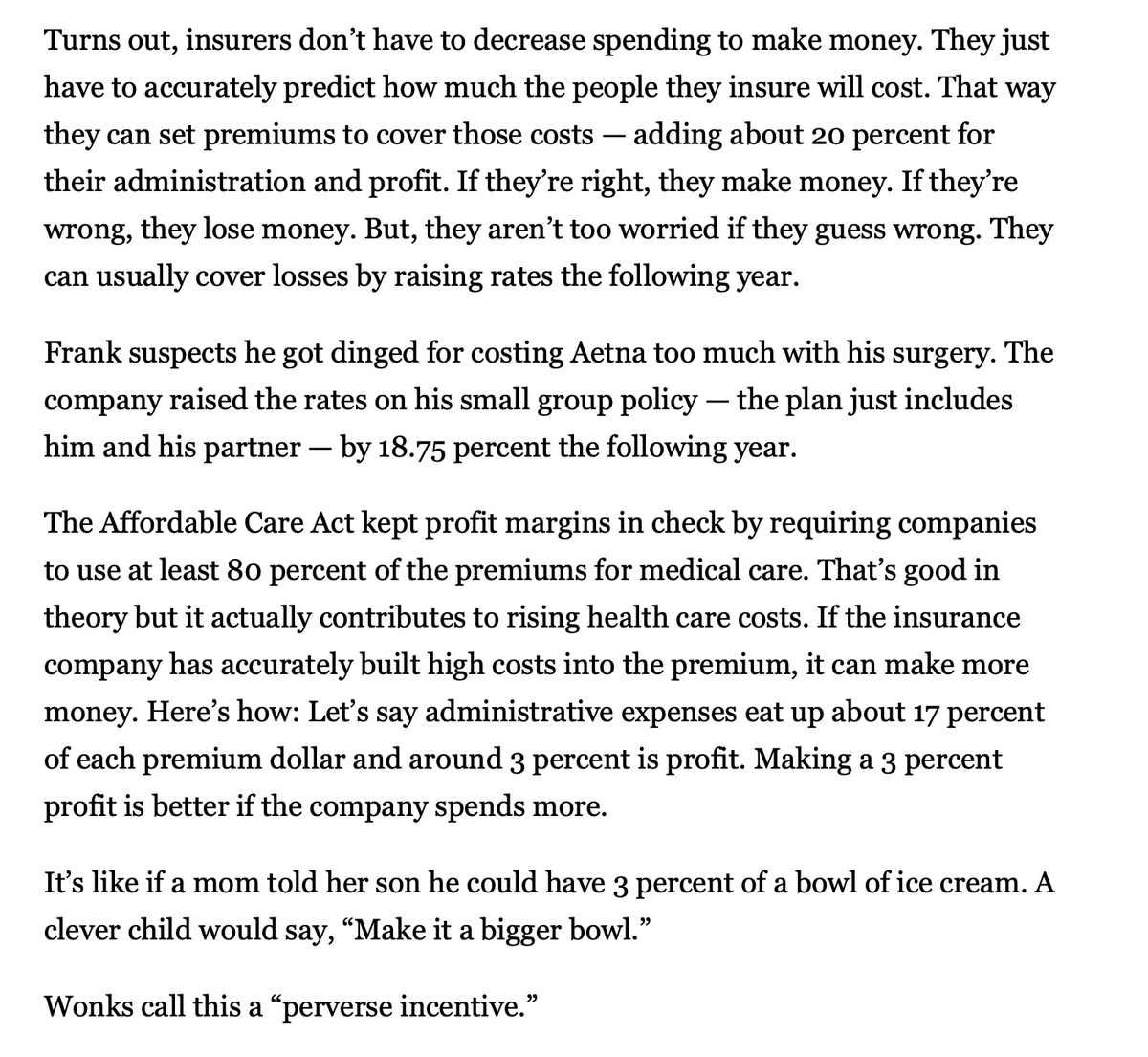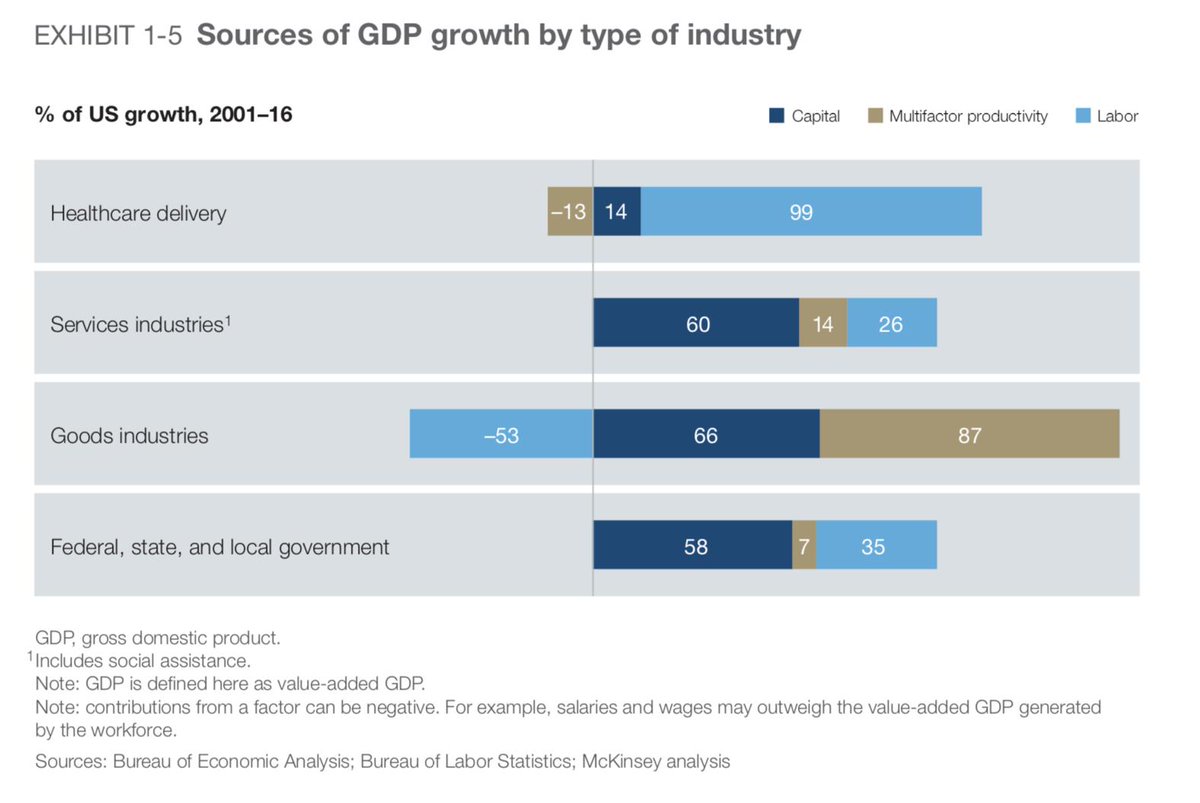nber.org/papers/w23748
propublica.org/article/why-yo…

wsj.com/articles/behin…
1. More job growth directly *increases* healthcare prices (higher cost of 'inputs'), but doesn't improve outcomes. Via @amitabh_chandra2: nejm.org/doi/full/10.10…

That's the difference between big tech & big health - health care institutions are not only huge employers, but their brands (e.g. Cleveland, Mayo) are revered.
ncbi.nlm.nih.gov/pmc/articles/P…
-promote competition (e.g. independent primary care startups, retail and UC, high volume centers for specialized procedures)
-restrict anticompetitive behaviors, e.g. BI/Lahey merger (modernhealthcare.com/article/201811…).
-invest in technology that reduces admin labor spend






